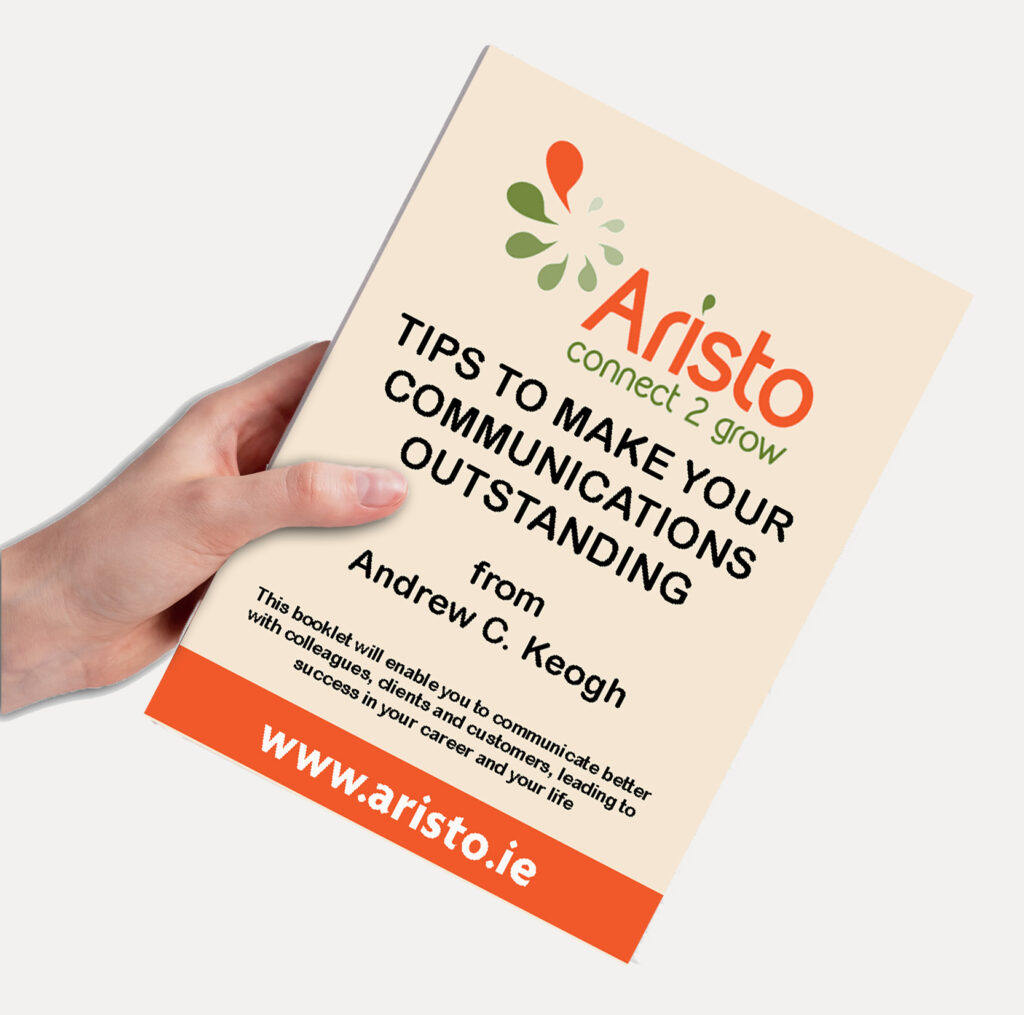When engaging with my clients in larger businesses, they have either just come out of a meeting or are under pressure to attend the next meeting.
With an exasperated voice, they tell me they spend all their days in meetings with little time for what they would regard as their actual work.
The real work is often done after hours, either in the office or at home, leading to frustration for the individual and their family. A time management issue that appears to be becoming more prevalent each day.
Remote working and online has increased the time spent in meetings and the stress levels of people participating, as the organiser has often not given enough thought to planning and preparation.
While the attendees feel they are just making up the numbers because they are part of the team and have no clear indication of what’s expected of them.
My Advice to improve the above situation:
Give thought to your title!
(Create a headline, headlines sell newspapers)
“Why a four-day week on full pay may be the next big thing”
Adrian Weckler’s Irish Independent Newspaper headline got my attention.
A well-thought-out title for your meeting will help you focus on the event’s purpose while piquing the attendees’ interest.
Have some fun with this, and when you become skilled in this area, both you and the audience will be more likely to look forward to attending.
Is this familiar:
I often see someone pulling out the agenda for the previous meeting, making a few changes and then sending it out to the prospective attendees.
Agendas get sent out with little preparation by the organiser and are received with little enthusiasm by the attendees.
Action:
Under the headline, have a brief chapter that explains the purpose of the meeting and the value to be gained. (Should be readable in one minute)
Bullet Points:
Five bullet points to explain the objectives are about right. Three is too little, seven is too many.
During the meeting:
Review the purpose of the session and discuss the bullet points, be sure to engage all the participants.
Here is a tip I received from a family member when I sought Advice on leading meetings. (Thanks, Ken)
The US Supreme Court Rule - When you’re trying to balance a mixture of dominant and submissive personalities I’ve outlined and used the US Supreme Court rule. They have a simple but very effective rule where “nobody speaks twice until everyone has spoken once”. I used this a while back when I was asked to facilitate a session with another team where there were one or two VERY dominant personalities in the room and some quite submissive ones. When the submissive ones had the opportunity and were invited to open up with the space they needed it made a huge difference to the meeting outcome.
Reminder:
The person who could have the solution to the topic under discussion may not have the confidence to speak up!
The organiser’s job is to create an environment where people are encouraged to contribute.
Summarise the meeting:
Here is where you summarise the key points of the discussion.
Ensure everyone who needs to contribute has done so, but do not lose control of time.
Assign next Actions:
Finally, assign actions to the people in the room, get their agreement and ideally, a return to you by a specified date.
Close:
Thank everyone for their time and commitment, and ensure that the meeting ends on or before the intended time.
You may still be talking when meetings run over time, but your audience will have mentally left the room.
My Best Advice:
- Finish early, and everyone will thank you for giving them back a little time for themselves.
- It’s the meeting organiser’s responsibility to ensure that people see the value in attending the meeting.
- Start and finish on time and fulfil all my suggested actions.
Do this, and you will be a good Manager and, more importantly, a Leader.
Action:
I would welcome advice/tips from people out there who spend lots of time leading and participating in meeting.





